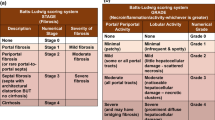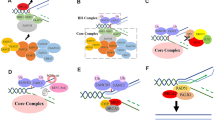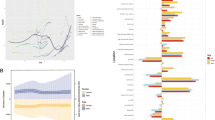Abstract
Hepatocellular carcinoma (HCC) is the fifth most common cancer worldwide, the prevalence and mortality rates of which are very high in Taiwan. The study aimed at evaluating the contribution of XRCC7 G6721T, together with cigarette smoking and alcohol drinking lifestyles, to the risk of HCC. In this hospital-based case-control study, the association of XRCC7 single nucleotide polymorphism G6721T with HCC risk was examined by polymerase chain reaction (PCR)-restriction fragment length polymorphism (RFLP) among 298 HCC patients and 889 age- and gender-matched healthy controls. The results showed that the percentages of TT, GT, and GG XRCC7 G6721T were 53.0, 41.3, and 5.7 % in the HCC patient group and 48.9, 43.1, and 8.0 % in the non-cancer control group, respectively. We have further stratified the populations by genders, cigarette smoking, and alcohol drinking status to investigate their combinative contributions with XRCC7 G6721T genotype to HCC risk. The results showed that the GG genotype of XRCC7 G6721T conducted a protective effect on HCC susceptibility which was obvious among males and drinkers, but not females, smokers, non-smokers, or non-drinkers (p = 0.0058, 0.0069, 0.1564, 0.2469, 0.9354, and 0.3416, respectively). Our results suggested that the GG and GT genotypes of X-ray repair cross-complementing group 7 (XRCC7) G6721T had no effect on HCC risk to the whole population, but had a protective effect on HCC risk among males and alcohol drinkers.
Similar content being viewed by others
References
Jemal A, Bray F, Center MM, Ferlay J, Ward E, Forman D. Global cancer statistics. CA Cancer J Clin. 2011;61(2):69–90.
Franceschi S, Montella M, Polesel J, La Vecchia C, Crispo A, Dal Maso L, et al. Hepatitis viruses, alcohol, and tobacco in the etiology of hepatocellular carcinoma in Italy. Cancer Epidemiol Biomarkers Prev. 2006;15(4):683–9.
Chuang SC, La Vecchia C, Boffetta P. Liver cancer: descriptive epidemiology and risk factors other than HBV and HCV infection. Cancer Lett. 2009;286(1):9–14.
Trichopoulos D, Bamia C, Lagiou P, Fedirko V, Trepo E, Jenab M, et al. Hepatocellular carcinoma risk factors and disease burden in a European cohort: a nested case–control study. J Natl Cancer Inst. 2011;103(22):1686–95.
Karran P. DNA double strand break repair in mammalian cells. Curr Opin Genet Dev. 2000;10(2):144–50.
Valerie K, Povirk LF. Regulation and mechanisms of mammalian double-strand break repair. Oncogene. 2003;22(37):5792–812.
Sipley JD, Menninger JC, Hartley KO, Ward DC, Jackson SP, Anderson CW. Gene for the catalytic subunit of the human DNA-activated protein kinase maps to the site of the XRCC7 gene on chromosome 8. Proc Natl Acad Sci U S A. 1995;92(16):7515–9.
Ferguson DO, Sekiguchi JM, Chang S, Frank KM, Gao Y, DePinho RA, et al. The nonhomologous end-joining pathway of DNA repair is required for genomic stability and the suppression of translocations. Proc Natl Acad Sci U S A. 2000;97(12):6630–3.
Singleton BK, Priestley A, Steingrimsdottir H, Gell D, Blunt T, Jackson SP, et al. Molecular and biochemical characterization of xrs mutants defective in Ku80. Mol Cell Biol. 1997;17(3):1264–73.
Wang LE, Bondy ML, Shen H, El-Zein R, Aldape K, Cao Y, et al. Polymorphisms of DNA repair genes and risk of glioma. Cancer Res. 2004;64(16):5560–3.
Hirata H, Hinoda Y, Matsuyama H, Tanaka Y, Okayama N, Suehiro Y, et al. Polymorphisms of DNA repair genes are associated with renal cell carcinoma. Biochem Biophys Res Commun. 2006;342(4):1058–62.
Hirata H, Hinoda Y, Tanaka Y, Okayama N, Suehiro Y, Kawamoto K, et al. Polymorphisms of DNA repair genes are risk factors for prostate cancer. Eur J Cancer. 2007;43(2):231–7.
Liu Y, Zhang H, Zhou K, Chen L, Xu Z, Zhong Y, et al. Tagging SNPs in non-homologous end-joining pathway genes and risk of glioma. Carcinogenesis. 2007;28(9):1906–13.
Hu Z, Liu H, Wang H, Miao R, Sun W, Jin G, et al. Tagging single nucleotide polymorphisms in phosphoinositide-3-kinase-related protein kinase genes involved in DNA damage “checkpoints” and lung cancer susceptibility. Clin Cancer Res. 2008;14(9):2887–91.
Siraj AK, Al-Rasheed M, Ibrahim M, Siddiqui K, Al-Dayel F, Al-Sanea O, et al. RAD52 polymorphisms contribute to the development of papillary thyroid cancer susceptibility in Middle Eastern population. J Endocrinol Invest. 2008;31(10):893–9.
Wang SY, Peng L, Li CP, Li AP, Zhou JW, Zhang ZD, et al. Genetic variants of the XRCC7 gene involved in DNA repair and risk of human bladder cancer. Int J Urol. 2008;15(6):534–9.
Bhatti P, Struewing JP, Alexander BH, Hauptmann M, Bowen L, Mateus-Pereira LH, et al. Polymorphisms in DNA repair genes, ionizing radiation exposure and risk of breast cancer in U.S. Radiologic technologists. Int J Cancer. 2008;122(1):177–82.
McKean-Cowdin R, Barnholtz-Sloan J, Inskip PD, Ruder AM, Butler M, Rajaraman P, et al. Associations between polymorphisms in DNA repair genes and glioblastoma. Cancer Epidemiol Biomarkers Prev. 2009;18(4):1118–26.
Gangwar R, Ahirwar D, Mandhani A, Mittal RD. Do DNA repair genes OGG1, XRCC3 and XRCC7 have an impact on susceptibility to bladder cancer in the North Indian population? Mutat Res. 2009;680(1–2):56–63.
Mandal RK, Kapoor R, Mittal RD. Polymorphic variants of DNA repair gene XRCC3 and XRCC7 and risk of prostate cancer: a study from North Indian population. DNA Cell Biol. 2010;29(11):669–74.
Long XD, Yao JG, Huang YZ, Huang XY, Ban FZ, Yao LM, et al. DNA repair gene XRCC7 polymorphisms (rs#7003908 and rs#10109984) and hepatocellular carcinoma related to AFB1 exposure among Guangxi population, China. Hepatol Res. 2011;41(11):1085–93.
Al-Hadyan KS, Al-Harbi NM, Al-Qahtani SS, Alsbeih GA. Involvement of single-nucleotide polymorphisms in predisposition to head and neck cancer in Saudi Arabia. Genet Test Mol Biomarkers. 2012;16(2):95–101.
Nasiri M, Saadat I, Omidvari S, Saadat M. Genetic variation in DNA repair gene XRCC7 (G6721T) and susceptibility to breast cancer. Gene. 2012;505(1):195–7.
Hsu CM, Yang MD, Chang WS, Jeng LB, Lee MH, Lu MC, et al. The contribution of XRCC6/Ku70 to hepatocellular carcinoma in Taiwan. Anticancer Res. 2013;33(2):529–35.
Wang Z, Lin H, Hua F, Hu ZW. Repairing DNA damage by XRCC6/KU70 reverses TLR4-deficiency-worsened HCC development via restoring senescence and autophagic flux. Autophagy. 2013;9(6):925–7.
Machida K, McNamara G, Cheng KT, Huang J, Wang CH, Comai L, et al. Hepatitis C virus inhibits DNA damage repair through reactive oxygen and nitrogen species and by interfering with the ATM-NBS1/Mre11/Rad50 DNA repair pathway in monocytes and hepatocytes. J Immunol. 2010;185(11):6985–98.
Tsai CW, Chang WS, Liu JC, Tsai MH, Lin CC, Bau DT. Contribution of DNA double-strand break repair gene XRCC3 genotypes to oral cancer susceptibility in Taiwan. Anticancer Res. 2014;34(6):2951–6.
Tsai CW, Chang WS, Lin KC, Shih LC, Tsai MH, Hsiao CL, et al. Significant association of Interleukin-10 genotypes and oral cancer susceptibility in Taiwan. Anticancer Res. 2014;34(7):3731–7.
Huang CY, Chang WS, Shui HA, Hsieh YH, Loh CH, Wang HC, et al. Evaluation of the contribution of methylenetetrahydrofolate reductase genotypes to Taiwan breast cancer. Anticancer Res. 2014;34(8):4109–15.
Bau DT, Fu YP, Chen ST, Cheng TC, Yu JC, Wu PE, et al. Breast cancer risk and the DNA double-strand break end-joining capacity of nonhomologous end-joining genes are affected by BRCA1. Cancer Res. 2004;64(14):5013–9.
Gottlieb TM, Jackson SP. The DNA-dependent protein kinase: requirement for DNA ends and association with Ku antigen. Cell. 1993;72(1):131–42.
Jackson SP. DNA-dependent protein kinase. Int J Biochem Cell Biol. 1997;29(7):935–8.
Hsu CM, Yang MD, Tsai CW, Ho CY, Chang WS, Chang SC, et al. The contribution of caveolin-1 genotype and phenotype to hepatocellular carcinoma. Anticancer Res. 2013;33(2):671–7.
Chang WS, Yang MD, Tsai CW, Cheng LH, Jeng LB, Lo WC, et al. Association of cyclooxygenase 2 single-nucleotide polymorphisms and hepatocellular carcinoma in Taiwan. Chin J Physiol. 2012;55(1):1–7.
Pelucchi C, Gallus S, Garavello W, Bosetti C, La Vecchia C. Alcohol and tobacco use, and cancer risk for upper aerodigestive tract and liver. Eur J Cancer Prev. 2008;17(4):340–4.
Xiao M, Shen Y, Chen L, Liao Z, Wen F. The rs7003908 (T>G) polymorphism in the XRCC7 gene and the risk of cancers. Mol Biol Rep. 2014;41(6):3577–82.
Acknowledgments
We appreciate Hong-Xue Ji, Chieh-Lun Hsiao, Chia-En Miao, and the Tissue Bank of China Medical University Hospital for their excellent technical assistance. This study was supported by research grants from Terry Fox Cancer Research Foundation and the Taiwan Ministry of Health and Welfare Clinical Trial and Research Center of Excellence (MOHW103-TDU-B-212-113002).
Conflicts of interest
None
Author information
Authors and Affiliations
Corresponding author
Additional information
Yi-Hsien Hsieh and Wen-Shin Chang contributed equally to this work.
Rights and permissions
About this article
Cite this article
Hsieh, YH., Chang, WS., Tsai, CW. et al. DNA double-strand break repair gene XRCC7 genotypes were associated with hepatocellular carcinoma risk in Taiwanese males and alcohol drinkers. Tumor Biol. 36, 4101–4106 (2015). https://doi.org/10.1007/s13277-014-2934-5
Received:
Accepted:
Published:
Issue Date:
DOI: https://doi.org/10.1007/s13277-014-2934-5




